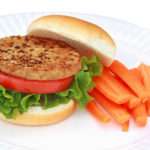Pinto Beans or Tofurky? How Food Choices and Motivations Affect Vegan Health
 When it comes to vegan diets and health, a couple of misconceptions often pop up on blogs and in social media. One is that whole-food plant-based people are healthier than plain old vegans. Related to that is the belief that vegans motivated by ethics choose less healthy diets than those motivated by health.
When it comes to vegan diets and health, a couple of misconceptions often pop up on blogs and in social media. One is that whole-food plant-based people are healthier than plain old vegans. Related to that is the belief that vegans motivated by ethics choose less healthy diets than those motivated by health.
Is it true? Do ethical vegans care more about animals than their own health? Research—or in some cases, the lack of research—casts some doubt on this.
Obviously, you can be vegan and still eat a pretty junky diet. There […]

